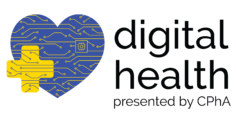Digital Health Corner Editor: Parisa Vatanka, PharmD, CTTS

Digital health describes the convergence of digital technologies with health and healthcare to enhance efficiency and outcomes of health care delivery. It aims to make medicine more precise and personalized. Isn’t medicine already precise and personalized? Not quite. That’s why medication optimization strategies for individualizing drug therapy are essential.
Medication optimization refers to patient-centered activities focused on safe and effective medication use and access. Its goal is to improve health outcomes through optimum medication use. Why is this important? According to IQVIA Institute for Human Data Science Study in 2019, global spending on prescription drugs is estimated to reach $1.5 trillion by 2023. Billions of dollars are spent annually on medication non-adherence. Even when prescribed and taken correctly, medications are associated with lack of efficacy and adverse drug events (ADEs). In the U.S., ADEs are found to be the fourth to sixth leading cause of death (Lazarou et al 1998) and the Institute of Medicine estimates they contribute to two million stays a year, prolonged hospital stays, and 125,000 hospital admissions (Kohn et al, 1999).
When it comes to medications, one size does not fit all. Some of the most common medication classes, such as antidepressants, are not effective in 4 out of 10 people (Spear et al, 2001). Ineffectiveness is much higher with drugs for Alzheimer’s disease and cancer. Completion of the Human Genome Project in 2003 marked a revolution in genomic medicine and renewed promise in personalizing medicine for all. Advances paved the way for the U.S. Precision Medicine Initiative, launched in 2015, resulting in great strides that continue to be made in oncology, including new knowledge of oncogenic mechanisms, development of targeted therapies, etc.
One of the most leveraged tools of precision medicine is pharmacogenomics (PGx). PGx helps predict a person’s drug response phenotype. It is integrated with other patient-specific factors, such as non-genetic organ function, other medications, social determinants of health, and patient preference. This integration of genetic and non-genetic factors helps improve medication optimization through personalized drug selection and management.
We will continue to see growth in genetic data. But is more data better? How do we apply what we already know to help clinicians prescribe medications optimally? Let’s take a look at major depressive disorder (MDD) – a leading cause of disability worldwide (WHO, 2020). The biggest challenge in treatment is the heterogeneity of depressive symptoms and varied response to antidepressants among patients. What if we had an algorithm that would take into consideration drug and disease heterogeneity? We do now. An example of this point-of-care technology is a clinical platform called ALMOND (Analytics and Machine Learning Framework for Actionable Intelligence from Clinical and Omics Data), developed by the Mayo Clinic and University of Illinois Urbana – Champaign. It uses machine learning and analytics workflow to identify the most effective treatment for MDD. The algorithm considers a patient’s genomics and clinical data and guides a clinician to choose an antidepressant that will have the highest likelihood of the patient achieving remission.
This ability to predict drug response phenotype by leveraging emerging technologies is a paradigm shift away from the one-size-fits-all approach towards individualizing drug therapy that can improve outcomes and reduce costs.
References
The IQVIA Institute Report. The Global Use of Medicine in 2019 and Outlook to 2023. January 29, 2019. Available: https://www.iqvia.com/insights/the-iqvia-institute/reports/the-global-use-of-medicine-in-2019-and-outlook-to-2023 (Accessed 2021 May 23)
Lazarou, J., Pomeranz, B. H., & Corey, P. N. (1998). Incidence of adverse drug reactions in hospitalized patients: a meta-analysis of prospective studies. JAMA, 279(15), 1200–1205. https://doi.org/10.1001/jama.279.15.1200
Institute of Medicine (US) Committee on Quality of Health Care in America. To err is human: building a safer health system. Kohn LT, Corrigan JM, Donaldson MS, editors. Washington (DC): National Academies Press (US); 2000. Available: www.ncbi.nlm.nih.gov/books/NBK225182 (Accessed 2021 May 23)
Spear, B. B., Heath-Chiozzi, M., & Huff, J. (2001). Clinical application of pharmacogenetics. Trends in molecular medicine, 7(5), 201–204. https://doi.org/10.1016/s1471-4914(01)01986-4
Dr. Adrijana Kekic, PharmD, BCACP is a Pharmacogenomics (PGx) Clinical Pharmacist Specialist and Associate Program Director of Education, Outpatient Pharmacy at Mayo Clinic. As a pharmacogenomics leader, researcher and educator, she spearheads implementation of pharmacogenomics services at Mayo Clinic in Arizona. Her research work includes pharmacogenomics studies in anesthesia, transplant, oncology, cardiology, and other areas. As an international speaker and a PGx subject expert, she is engaged on various precision medicine communication platforms. Dr. Kekic earned the Doctor of Pharmacy degree from Midwestern University College of Pharmacy and Board Certified Ambulatory Care Pharmacist. She is also a Master of Healthcare Innovation Candidate from Arizona State University. With almost two decades of pharmacy leadership and clinical expertise in personalized medication therapy management, Adrijana continues to advance pharmacy practice. Her focus in on healthcare innovation, science communication, and healthcare disparities, especially sex based differences in pharmacotherapy. She is a founder of a networking platform dedicated to high impact professional women in healthcare.

